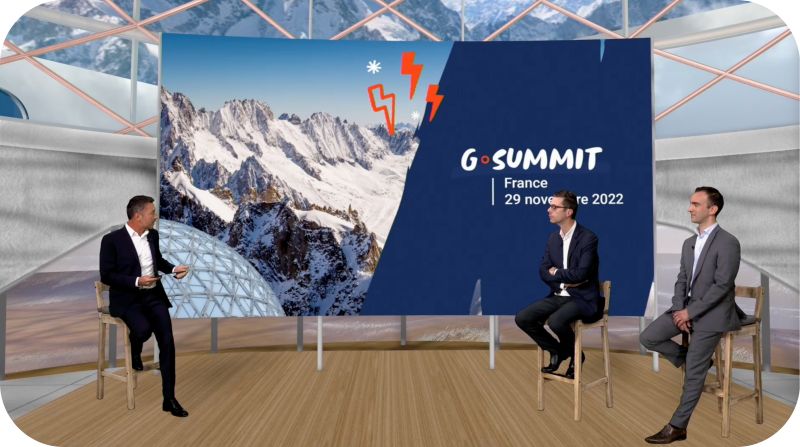Virtuel G-Summit 2022 – Target First

Virtuel G-Summit 2022 – Target First
On November 29, Genesys held its G-Summit, a virtual exhibition dedicated to customer relations. This event was an opportunity to discover what the current priorities are as well as the major trends for the years to come.
From a macro-economic point of view, the intervention of Nicolas Bouzou, a renowned French economist, provided a good summary of the situation of companies.
Three years ago, the challenge for companies was to increase their sales by using traditional levers in a normal market.
Today, they have to succeed in recruiting, supplying themselves with raw materials and stocking themselves with goods.
By 2023, the consequences of the energy crisis will be added to these difficulties, threatening the livelihood of many industries, large and small.
We have gone from a period where we could borrow money at rates close to 0% to an inflationary period which is simply the result of a situation where demand is much higher than supply.
How can we resist, and why not, emerge stronger from this economically dangerous period ?
Controlling and optimizing the supply chain appear to be key elements, and Nicolas Bouzou points out that French companies are not lagging behind in this area.
The other key is still to offer the market differentiating products in order to be competitive on another level than price.
Finally, consumer expectations are high in terms of customer service, and on this subject too, there is a great opportunity to stand out. Customer services will have to show more and more empathy and put the human element at the heart of their strategy.
To the question “Do you think Nicolas that the development of second-hand markets is sustainable?” He answers that a priori yes. He wants to prove that even luxury brands are getting involved, and all the more easily because their products are sometimes guaranteed for life.
It is above all a response to ecological issues, to soaring prices and to the decline in purchasing power of several social classes.
Finally, the fact that the young generation was the first to adopt this mode of consumption encourages us to think that this mode of purchase is becoming a permanent part of their lifestyle.
In this context where the search for savings is constant, should we fear the automation of customer relations taken to the extreme ?
Automation is at the heart of the transformation, because it allows to compensate for the lack of human resources and the increasing turnover. However, as Laurent Millan from NTT points out, if used properly, it can strengthen human capital.
In fact, entrusting chatbots with the handling of level 1 questions enhances the job description of human advisors, who are addressed with more complex and therefore more fulfilling subjects to handle.
We must therefore give managers the means to coach advisors effectively.
The other challenge is to simplify the customer journey to the extreme and move to omnichannel.
Customers are demanding automation because they want to be able to reach Customer Services 24/7. The new generation is adept at self-care, so we have to give them the means to use it, while at the same time, a more senior generation remains attached to the use of email and the telephone.
Another emerging aspect is that the customer relationship extends internally, and concerns relations between employees. This often starts with HR, as the opportunities for interaction are numerous, and here again, a Chatbot well connected to the business tools secures the traceability of the information transmitted and collected.
If you want to facilitate contact with your customers, it is important to listen carefully to what they have to say and to emphasize the human aspect of customer relations. Self-care should be used to generate value for the customers and for the company.
It is also crucial to measure the customer experience to understand how customers perceive your company and its products or services. This can be done by using tools such as post chat surveys to gather data on customer satisfaction.
Finally, to provide a personalized customer experience, it is important to anticipate customer needs and provide contextualized responses. This can be done by using tools such as tracking customer interactions, personalizing communications and setting up personalized customer journeys. By adopting these approaches, you can improve the customer experience and strengthen the relationship with your customers.
In short, the experience offered to your customers is strategic as a differentiation axis. It is about rethinking it, introducing omnichannelity and consolidating data to better exploit it. The use of innovative solutions, starting with Artificial Intelligence, Conversational Messaging, Chatbots or Visio Chat are all answers to the challenges of the decade.







